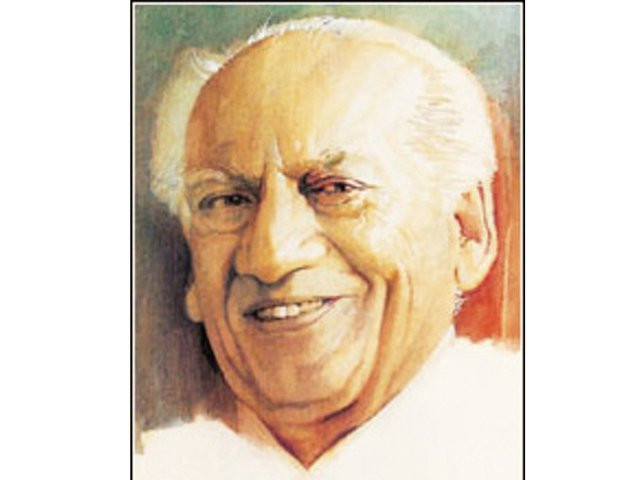Faiz’s poems: Not so lost in translation
Mahmood Jamal shares his views on Faiz and translating Urdu poetry.

A file photo of Faiz Ahmed Faiz. PHOTO: FILE
That was Mahmood Jamal’s – who belongs to a Lucknow family associated with the arts since the 19th century – description of Faiz’s style. Jamal, a poet himself, was talking with Raza Rumi about his translation of 50 of Faiz’s poems published recently by the Oxford University Press (OUP).
For him poetry, not prose, is at the heart of Pakistan’s literature. He quoted Shelley: Poets are the unacknowledged legislators of the world.
Jamal said no contemporary poet has resonated with the people as much as Faiz. “In the contemporary world there are very few poets who can connect to the hopes of the nation,” he said, adding that Faiz is still relevant to millions of people around the world.
Faiz talked about a common humanity, said Jamal, “He tells you how to deal with both gham-i-janaan and gham-i-doraan while [at the same time] he cries out against the injustices – the politics and the way our world is structured.”
He described his book – “which is more of a ‘trans-creation’ than translation” – as another ‘humble attempt’ at capturing the essence of Faiz’s work. Talking about earlier translations of Faiz, Jamal said that while some were good, there were many that were done ‘too technically’ so that the essence of the poetry was lost in translation.
His first attempt at translating Faiz was decades ago when he was compiling a collection of translated poems for Penguin Books. He started with Mujh say pehli si muhabbat meray mehbood na mang. He said he had shown the translation to Faiz who had approved of it.
Jamal had to leave out some of his favourite poems like Sham-i-firaaq “which is very hard to translate.” For him, ghazal – which is a constraining form because of its requirement of rhyme and metre – was a trickier genre to translate, “How do you translate Dasht-e-tanhai?”
“Each word carries a weight… a word has multiple meanings,” he said of the ghazal. “If you try and translate Tum meray pass hotay ho goya jab koi doosra nahi hota literally it might end up sounding like a pop song,” Jamal said.
Asked whether translating a poet reduced a particular verse to a certain interpretation, he said that while the poet may have had a different or several meanings in mind, sometimes translations ended up giving it a new interpretation.
In reply to another question, Jamal said had Faiz been around today he would have been an anti-imperialist, “But keep in mind that he did not ask one social class to overthrow another…one finds very few instances of anti-colonial emotion in Faiz.”
The discussion ended with Jamal saying, “His poetry has protest, but no slogans. He was an international but not a nationalist…a patriot but not a jingoist.”



















COMMENTS
Comments are moderated and generally will be posted if they are on-topic and not abusive.
For more information, please see our Comments FAQ